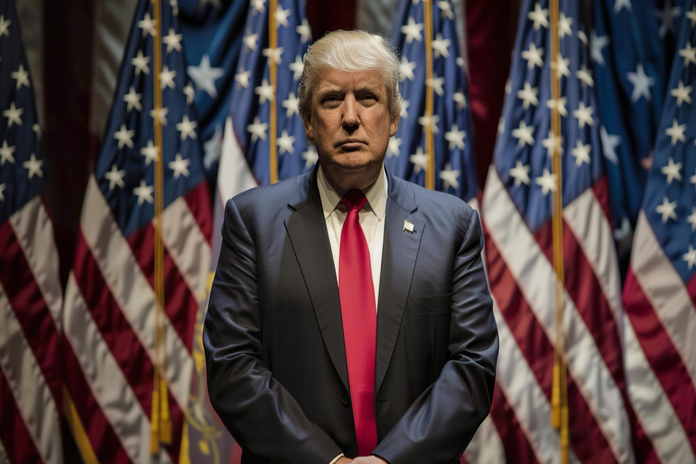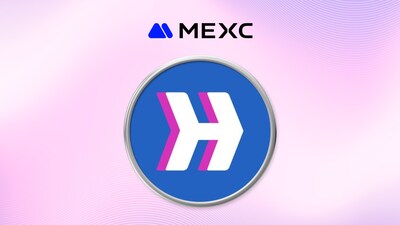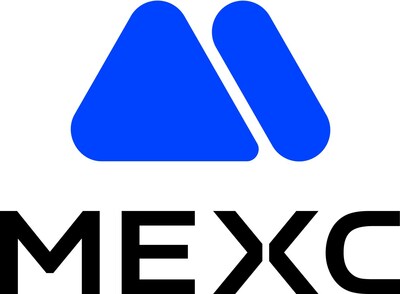PayPal and Coinbase Expand Partnership to Drive Innovation of Stablecoin-based Solutions
This post was originally published on this site
Coinbase platforms to provide fee-free purchases and easy 1:1 redemption of PayPal USD while companies jointly explore new payment use cases
SAN JOSE, Calif., April 24, 2025 /PRNewswire/ — PayPal Holdings, Inc. (NASDAQ: PYPL) and Coinbase Global, Inc. (NASDAQ: COIN) today announced an expansion of their partnership to increase the adoption, distribution, and utilization of the PayPal USD (PYUSD) stablecoin. This collaboration will provide value for consumers, enterprises, and institutions as they continue to utilize digital currencies across platforms and borders with the stability of regulated USD-denominated crypto-native assets.
“For years, we’ve worked with Coinbase to enable a best-in-class integration to provide a simple, familiar way for PayPal users to fund crypto purchases on Coinbase. Our objectives aligned further as we deployed PYUSD in combination with our payments expertise enabling greater commerce applications,” said Alex Chriss, President and CEO, PayPal. “We are excited to drive new, exciting, and innovative use cases together with Coinbase and the entire cryptocurrency community, putting PYUSD at the center and driving further utility and adoption for digital currencies among developers, customers, and other users.”
This partnership will give Coinbase‘s millions of customers direct access to PYUSD while also enabling the thousands of institutions already using crypto increased utility with PYUSD. Additional details include:
- 1:1 PYUSD to USD conversions– Coinbase users will now be able to buy, sell, trade PYUSD with no platform fees, while also being able to redeem PYUSD 1:1 for US dollars directly on Coinbase platforms.
- Payments related activities – The two companies are committed to collaborating on a variety of innovations that will help accelerate the adoption and utility of stablecoin based solutions for the purposes of moving or managing money around the world, particularly in commerce.
- DeFi exploration – Coinbase and PayPal agree to explore new use cases for PYUSD in DeFi and onchain platforms.
“We’re excited to be partnering with PayPal. Their more than 430 million consumer and merchant accounts offer an unprecedented opportunity to increase stablecoin adoption globally,” said Brian Armstrong, CEO, Coinbase.
This agreement expands on the previous work between the two companies announced in 2021, enabling Coinbase users to use their PayPal accounts for immediate and direct funding of purchases on Coinbase and making withdrawals of fiat currency from Coinbase.
For more information about PYUSD, visit www.paypal.com/pyusd.
About PayPal USD (PYUSD)
PayPal USD is issued by Paxos Trust Company, a fully chartered limited purpose trust company. Paxos is licensed to engage in Virtual Currency Business Activity by the New York State Department of Financial Services. Reserves for PayPal USD are fully backed by U.S. dollar deposits, U.S. Treasuries and similar cash equivalents, and PayPal USD can be bought or sold through PayPal and Venmo at a rate of $1.00 per PayPal USD.
About PayPal:
PayPal has been revolutionizing commerce globally for more than 25 years. Creating innovative experiences that make moving money, selling, and shopping simple, personalized, and secure, PayPal empowers consumers and businesses in approximately 200 markets to join and thrive in the global economy. For more information, visit https://www.paypal.com, https://about.pypl.com/ and https://investor.pypl.com/.
PayPal, Inc. (NMLS ID #: 910457) is licensed to engage in Virtual Currency Business Activity by the New York State Department of Financial Services.
About Coinbase
Crypto creates economic freedom by ensuring that people can participate fairly in the economy, and Coinbase (NASDAQ: COIN) is on a mission to increase economic freedom for more than 1 billion people. We’re updating the century-old financial system by providing a trusted platform that makes it easy for people and institutions to engage with crypto assets, including trading, staking, safekeeping, spending, and fast, free global transfers. We also provide critical infrastructure for onchain activity and support builders who share our vision that onchain is the new online. And together with the crypto community, we advocate for responsible rules to make the benefits of crypto available around the world.
Contact: Media Relations, mediarelations@paypal.com
![]() View original content to download multimedia:https://www.prnewswire.com/news-releases/paypal-and-coinbase-expand-partnership-to-drive-innovation-of-stablecoin-based-solutions-302436533.html
View original content to download multimedia:https://www.prnewswire.com/news-releases/paypal-and-coinbase-expand-partnership-to-drive-innovation-of-stablecoin-based-solutions-302436533.html
SOURCE PayPal Holdings, Inc.

Featured Image: depositphotos @ artefacti

















